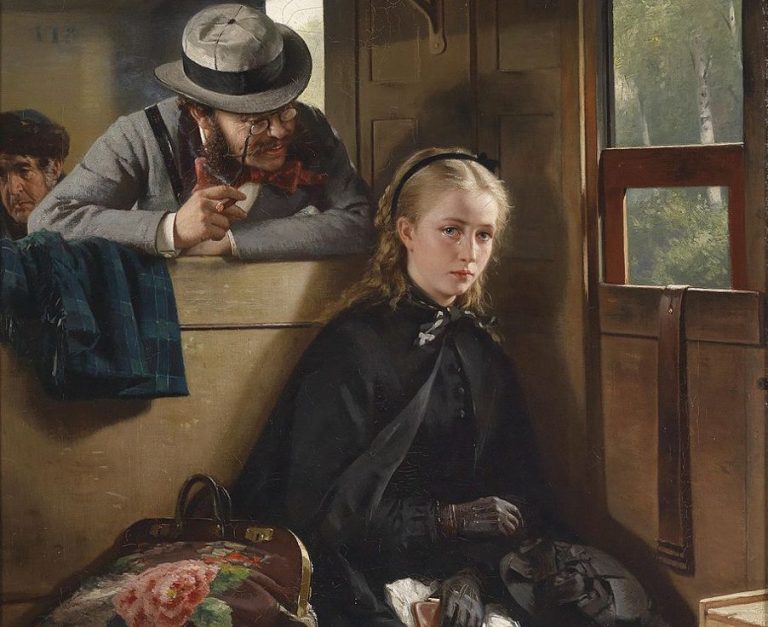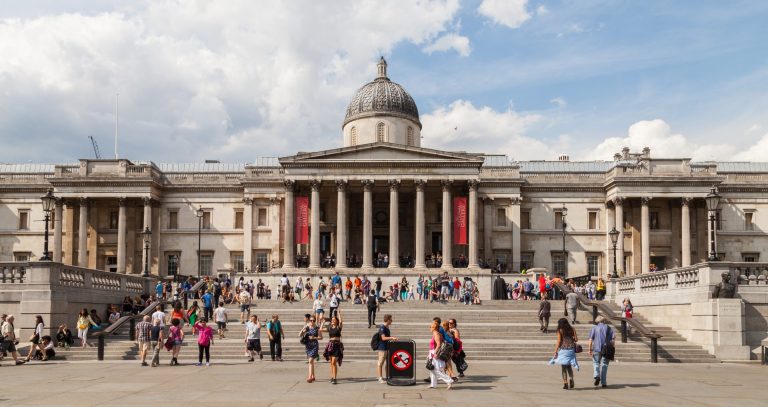We’re on the second-to-last train back from London. It’s a rammed carriage that hums with the noise of the tracks and snatches of conversation, voices jumping over the seats that people are split across. We’re lucky. Not only did we catch the train that we thought we’d miss, but we’re sitting next to each other. More than that, we don’t mind the bustle, the fact that it’s busy. In truth, I’m glad. My friend and I may have grown up together – we may have had that rite-of-passage first trip ‘alone’ to London, left school, moved to university in the city (her more than me …) – but it’s late. I’d rather more people were around than not.
And still it comes. We’re probably somewhere before High Wycombe, there’s a long time yet until most people have got off. We’re talking about something inane, perhaps a little loudly, but I wouldn’t say we’re competing with the snippets from TikTok playing further down the carriage. All seems well, but –
“Actually…” the man across the aisle butts in. He wants to let us know that we’re wrong. He knows – though luckily he doesn’t also go on to detail how – that the thing we were talking about as happening in June, actually happens in October. We turn towards him, smile, nod, and probably say “oh”. Neither of us are that fussed over what we were talking about. But he goes on. We try to draw it to a close and eventually make quite a conscious shift back to how we were sitting before. In the window I can see him still leaning across the aisle, still watching.
He gets off at the next station. The woman across the table from us catches our eye.
In a sense, I know that this man was trying to be helpful, trying to strike up a conversation. Sometimes our expectations for public transport seem a bit isolationist. Sometimes it seems like we idealise and expect a silence which ignores its essentially communal nature. Recently, such discussion has centred on targeting the ‘antisocial’ behaviour presented by phone speakers. Blaring TikToks, Youtube videos, music have been put on trial for the greatest crime of all: profaning the sanctity of the commute, disturbing the peace of the bounded individual.
On the other hand, there’s a lament for what seems a lost art. Why have we stopped talking to strangers? Isn’t it nice to take a moment for connection, for spontaneity? A sense of nostalgia makes it easy to believe that we too have experienced and lost some great collective past, played out in conversations around bus stops and across worn seats. And it’s logical enough that we should want it ‘back’. Public transport could be at the heart of that, acting as a kind of thread to turn a nostalgic communality into reality.
Part of me feels bad for feeling uncomfortable. I’d prefer to take the latter stance than the former. But, sometimes, it’s hard to square what you want to be true with what you experience. Especially when encounters often fall on a blurry line: one where you aren’t quite sure what you’re reading into, or what you’re naïvely trying to explain away. Often it’s hard to predict whether a boundary will be crossed, or it feels impossible to do anything about it once it has.
Much of this is a consequence of the spaces we find ourselves in. Public transport may – by definition – be public, but it is inevitably closed off and contained. It is this spatial vulnerability that can’t be forgotten in search for community. When most people are simply trying to get from Y to Z, just being on a train cannot automatically enrol you in some kind of social experiment.
In fact, we might rethink what kinds of nostalgia we employ, especially when talking about ‘reviving’ a community-orientated public sphere. Asking where community has gone may help to delegitimise neoliberal presumptions of individualism, but we should be careful what we can overlook by employing a ‘shared’ communal memory. Perhaps ‘in your day’ people milled around bus stops and chatted between carriages, but the uncomfortable encounter is far from a new phenomenon. ‘The irritating gentleman’ looms large in the artwork we see and the stories we hear, across generations or between childhood friends. If our best reach for community is notorious for coerced tolerance, we might do well to look elsewhere.
Later, a mother and daughter pass us on their way off the train. We’ve given up on talking (who knows what we’d say without a male fact-checker anyway) and have fallen into a yawning game of Monopoly Deal. “We love that game,” the mother says, “our family plays it all the time.” We all laugh, make a slightly forced joke about being sore losers and laugh again. They carry on down the carriage.
I don’t think that we should expect our experiences on public transport to simply revolve around ourselves. But just as individualism should not be blindly accepted, our interactions with others should be alert to the fact that simply sitting on a train does not convey unmitigated interest in unsolicited opinions, or openness to interrogation. We may share a carriage but we all have had different experiences, we all have different preferences for how much we would like to interact. Community comes not just from interaction but from mutuality, empathy, and care.
Ultimately, if it’s nearly midnight and you find yourself leaning across to correct younger women, you could probably let an incorrect month slide.










![‘warþ gasric grorn, þær he on greut giswom’ [Fish sad when washed to shore] – The Franks Casket ‘warþ gasric grorn, þær he on greut giswom’ [Fish sad when washed to shore] – The Franks Casket](https://cherwell.org/wp-content/uploads/2024/10/article_topimage_Franks_Casket_rear-768x291.jpg)
